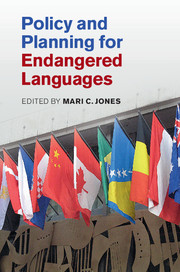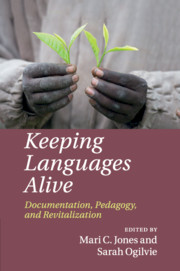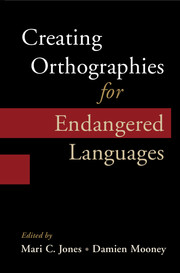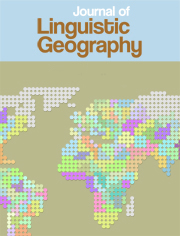Policy and Planning for Endangered Languages
Language policy issues are imbued with a powerful symbolism that is often linked to questions of identity, with the suppression or failure to recognise and support a given endangered variety representing a refusal to grant a 'voice' to the corresponding ethno-cultural community. This wide-ranging volume, which explores linguistic scenarios from across five continents, seeks to ignite the debate as to how and whether the interface between people, politics and language can affect the fortunes of endangered varieties. With chapters written by academics working in the field of language endangerment and members of indigenous communities on the frontline of language support and maintenance, Policy and Planning for Endangered Languages is essential reading for researchers and students of language death, sociolinguistics and applied linguistics, as well as community members involved in native language maintenance.
- A unique volume which focuses explicitly on planning and policy for endangered languages
- Provides widespread coverage, including discussion of endangered languages from five continents
- A collaborative work which offers readers an insight into policy and planning from the perspective of professional linguists and community members working to maintain their native language
Reviews & endorsements
"This volume adds to our understanding of endangered languages, with a diversity that provides evidence of the many ways that language activists can help preserve them."
Bernard Spolsky, Bar-Ilan University, Israel
"Why have language policies had only limited success in reversing language shift? The case studies presented in this volume show the effects of various language policies on a range of communities around the world. By understanding the successes and failures of different language policies, linguists and language activists can be better informed as to what type of language policy might have the greatest impact on a given community."
Bonny Sands, Northern Arizona University
Product details
August 2015Hardback
9781107099227
280 pages
238 × 160 × 23 mm
0.54kg
23 b/w illus. 8 maps 9 tables
Available
Table of Contents
- Preface Mari C. Jones
- 1. Leveraging language policy to effect change in the Arctic Lenore A. Grenoble
- 2. Maintaining and revitalising the indigenous endangered languages of Borneo: comparing 'top-down' and community-based policy initiatives and strategies James McLellan and Gary Jones
- 3. Language ideologies, practices and policies in Kanaky/New Caledonia Julia Sallabank
- 4. Immersion education and the revitalisation of Breton and Gaelic as community languages Fabienne Goalalbré
- 5. Asset, affiliation, anxiety? Exploring student perspectives on Welsh-medium study at post-16 Further Education Colleges Andrew James Davies and Prysor Mason Davies
- 6. From policies to practice: the complex role of social mediators in Náayeri public education (Nayarit, Mexico) Margarita Valdovinos
- 7. Transitional turtle soup: reconceptualising Mikasuki language acquisition planning Arieh Sherris and Jill Robbins
- 8. Value, status, language policy and the language plan Rawinia Higgins and Poia Rewi
- 9. Assessing the effect of official recognition on the vitality of endangered languages: a case study from Italy Claudia Soria
- 10. Young Kashubs and language policy: between officialisation and community Nicole Dołowy-Rybińska
- 11. Confrontation and language policy: non-militant perspectives on conflicting revitalisation strategies in Béarn, France Damien Mooney
- 12. Occitan: a language that cannot stop dying Aurélie Joubert
- 13. 'To be a good westerner, you need to know where you come from': challenges facing language revitalisation in central Africa Rebecca Mitchell
- 14. Rediscovering history and the Cornish revival: changing attitudes to obtain language policies Michael Tressider.





